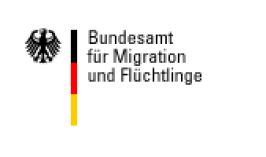Privacy Policy
Name and contact information of the Controller pursuant to Article 4 (7) GDPR
Study.on GmbH
Immermannstraße 19
40210 Düsseldorf
Phone: +49 (0) 211 985 950 70
Fax: +49 (0) 211 993 645 90
E-Mail: kontakt@studyon.de
Safety and protection of your personal data
We consider it our primary responsibility to protect the confidentiality of the personal information you provide and to protect it from unauthorized access. That's why we take the utmost care and use state-of-the-art security standards to ensure maximum protection of your personal information.
As a private company, we are subject to the provisions of the European General Data Protection Regulation (GDPR) and the regulations of the German Federal Data Protection Act (BDSG). We have taken technical and organizational measures which ensure that data protection regulations are observed by us and by our external service providers.
Definitions
The law requires that personal data be processed lawfully, in good faith and in a manner that is transparent to the data subject ("lawfulness, fairness, transparency"). To ensure this, we would like to inform you of the legal definitions that are used in this Privacy Statement:
- Personal data
"Personal data" means any information relating to an identified or identifiable natural person (hereinafter the "data subject"). A natural person is considered to be identifiable if he or she can be identified directly or indirectly, in particular by association with an identifier such as a name, an identification number, location data, an online identifier, or one or more special features which express the physical, physiological, genetic, mental, economic, cultural or social identity of the natural person.
- Processing
"Processing" means any operation or set of operations which is performed on personal data, whether or not by automated means, such as collection, recording, organization, structuring, storage, adaptation or alteration, retrieval, consultation, use, disclosure by transmission, dissemination or otherwise making available, alignment or combination, restriction, erasure or destruction.
- Restriction of processing
"Restriction of processing" means the marking of stored personal data with the aim of limiting its processing in the future.
- Profiling
”Profiling“ means any form of automated processing of personal data consisting of the use of personal data to evaluate certain personal aspects relating to a natural person, in particular to analyze or predict aspects concerning that natural person's performance at work, economic situation, health, personal preferences, interests, reliability, behavior, location or movements.
- Pseudonymization
“Pseudonymization“ means the processing of personal data in such a manner that the personal data can no longer be attributed to a specific data subject without the use of additional information, provided that such additional information is kept separately and is subject to technical and organizational measures to ensure that the personal data is not attributed to an identified or identifiable natural person
- Filing system
“Filing system“ means any structured set of personal data which is accessible according to specific criteria, whether centralized, decentralized or dispersed on a functional or geographical basis.
- Controller
“Controller“ means the natural or legal person, public authority, agency or other body which, alone or jointly with others, determines the purposes and means of the processing of personal data. Where the purposes and means of such processing are determined by European Union or Member State law, the controller or the specific criteria for its nomination may be provided for by European Union or Member State law.
- Processor
“Processor“ means a natural or legal person, public authority, agency or other body which processes personal data on behalf of the controller.
- Recipient
“Recipient“ means a natural or legal person, public authority, agency or another body, to which the personal data is disclosed, whether a third party or not. However, public authorities which may receive potentially personal data in the framework of a particular inquiry in accordance with European Union or Member State law shall not be regarded as recipients. The processing of that data by those public authorities shall be in compliance with the applicable data protection rules according to the purposes of the processing.
- Third party
A “third party“ means a natural or legal person, public authority, agency or body other than the data subject, controller, processor and persons who, under the direct authority of the controller or processor, are authorized to process personal data
- Consent
The “consent“ of the data subject means any freely
given, specific, informed and unambiguous indication of the data subject's wishes by which he or she, by a statement or by a clear affirmative action, signifies agreement to the processing of
personal data relating to him or her.
Lawfulness of processing
The processing of personal data is only lawful if there is a legal basis for such processing. Pursuant to Article 6 (1) (a) - (f) of the GDPR, the legal basis for the processing may be in particular:
- The data subject has given consent to the processing of his or her personal data for one or more specific purposes
- Processing is necessary for the performance of a contract to which the data subject is party or in order to take steps at the request of the data subject prior to entering into a contract
- Processing is necessary for compliance with a legal obligation to which the controller is subject
- Processing is necessary in order to protect the vital interests of the data subject or of another natural person
- Processing is necessary for the performance of a task carried out in the public interest or in the exercise of official authority vested in the controller
- Processing is necessary for the purposes of the legitimate interests
pursued by the controller or by a third party, except where such interests are overridden by the interests or fundamental rights and freedoms of the data subject which require protection of personal
data, in particular where the data subject is a child.
Information regarding the collection of personal data
(1) Below, we inform you of the collection of personal data when using our website. Personal data is e.g. you name, address, email addresses, user behavior, etc.
(2) When contacting us by email or via our support form, the information you provide (your email address and, if applicable, your name and your telephone number) is stored by us in order to answer your questions. We delete the data collected in this manner once storage is no longer required, if processing is restricted, or in the event that legal retention obligations exist.
Collection of personal data when visiting our website
When you merely use the website for informational purposes, i.e. if you do not register or otherwise provide information to us, we only collect the personal data that your browser transmits to our server. If you wish to view our website, we collect the following data which is technically necessary for us to display our website to you and to ensure its stability and security (here, the legal basis is Article 6 (1) (f) GDPR):
- IP address
- date and time of the request
- time zone difference to Greenwich Mean Time (GMT)
- content of the request (specific page)
- access status/HTTP status code
- each transmitted volume of data
- website from which the request originates
- browser
- operating system and its user interface
- language and version of the browser software
Use of Cookies
(1) In addition to the aforementioned data, cookies are stored on your computer when you use our website. Cookies are small text files that are stored on your hard drive and that are assigned to the browser you are using and that provide certain information to the entity that sets the cookie. Cookies cannot execute programs or transmit viruses to your computer. They help make internet offerings overall more user-friendly and effective.
(2) This website uses the following types of cookies, whose scope and function are explained below:
- Transient cookies (see a.)
- Persistent cookies (see b.).
- Transient cookies are automatically deleted when you close the browser. These include in particular session cookies. These store what is known as a session ID, with which various requests from your browser can be assigned to a common session. This permits your computer to be recognized when you return to our website. Session cookies are deleted when you log out or close the browser.
- Persistent cookies are automatically deleted after a specified period, which may differ depending on the cookie. You can delete the cookies at any time from within the security settings of your browser.
- You can configure your browser setting to match your
preferences and e.g. decline to accept third-party cookies or all cookies. "Third-party cookies" are cookies that have been set by a third party and therefore not by the actual website which you
currently are on. Please note that disabling cookies may not enable you to use all features of this website.
Minors
The services we provide are solely intended for adults. Persons under the age of 18 should not submit any personal data to us without the consent of their parents or guardians.
Rights of data subjects
(1) Revocation of consent
If your personal data is processed on the basis of consent which you have given us, you have the right to revoke your consent at any time. The revocation of consent does not affect the legality of the processing performed on the basis of the consent until the time of revocation.
You can contact us at any time to exercise your right to revoke consent.
(2) Right to confirmation
You have the right to request confirmation from the controller that we are processing personal data concerning you. You can request this confirmation at any time using the contact details above.
(3) Right to information
In the event that personal data is processed, you can request information about this personal data and the following information at any time:
- the purposes of the processing
- the categories of personal data being processed
- the recipients or categories of recipients to whom the personal data has been or is being disclosed, in particular in the case of recipients in third countries or international organizations
- if possible, the planned duration for which the personal data is stored or, if this is not possible, the criteria for determining this duration
- the existence of a right to rectification or erasure of the personal data concerning you, or to a restriction of processing by the controller or a right to object to such processing
- the existence of a right to lodge a complaint with a supervisory authority
- if the personal data is not collected from the data subject, all available information on the source of the data
- the existence of automated decision-making, including profiling, in accordance with Article 22 (1) and (4) GDPR and, at least in these cases, meaningful information about the logic involved and the scope and intended impact of such processing on the data subject
If personal data is transferred to a third country or to an international organization, you have the right to be informed of the appropriate safeguards under Article 46 of the GDPR in connection with the transfer. We provide a copy of the personal data that is the subject of the processing. For any additional copies you request of a person, we may charge a reasonable fee based on our administrative costs. If your request is submitted electronically, the information must be provided in a standard electronic format, unless otherwise stated. The right to receive a copy under paragraph 3 shall not affect the rights and freedoms of others.
(4) Right to rectification
You have the right to demand the immediate correction of incorrect personal data concerning you. Taking into account the purposes of processing, you have the right to request the completion of incomplete personal data, including by means of a supplementary statement.
(5) Right to erasure (“right to be forgotten“)
You have the right to demand that the controller erase personal data concerning you without undue delay, and we are obligated to erase personal data without undue delay where one of the following grounds applies:
- the personal data are no longer necessary in relation to the purposes for which they were collected or otherwise processed
- the data subject withdraws the consent on which the processing is based according to point (a) of Article 6(1), or point (a) of Article 9(2), and there is no other legal ground for the processing
- the data subject objects to the processing pursuant to Article 21(1) GDPR and there are no overriding legitimate grounds for the processing, or the data subject objects to the processing pursuant to Article 21(2) GDPR;
- the personal data have been unlawfully processed
- personal data must be erased for compliance with a legal obligation in Union or Member State law to which the controller is subject
- the personal data was collected in relation to the offer of information society services referred to in Article 8(1) GDPR
If the controller has made the personal data public and is obliged pursuant to paragraph 1 to erase the personal data, the controller, taking account of available technology and the cost of implementation, shall take reasonable steps, including technical measures, to inform controllers which are processing the personal data that the data subject has requested the erasure by such controllers of any links to, or copy or replication of, that personal data.
The right to erasure (“right to be forgotten“) does not apply to the extent that the processing is necessary:
- to exercise the right of freedom of expression and information
- for compliance with a legal obligation which requires processing by Union or Member State law to which the controller is subject or for the performance of a task carried out in the public interest or in the exercise of official authority vested in the controller
- for reasons of public interest in the area of public health in accordance with points (h) and (i) of Article 9(2) as well as Article 9(3) GDPR
- for archiving purposes in the public interest, scientific or historical research purposes or statistical purposes in accordance with Article 89(1) GDPR in so far as the right referred to in paragraph 1 is likely to render impossible or seriously impair the achievement of the objectives of that processing; or
- for the establishment, exercise or defense of legal claims
(6) Right to restriction of processing
You have the right to request that we restrict the processing of your personal data if any of the following conditions apply:
- the accuracy of the personal data is contested by the data subject, for a period enabling the controller to verify the accuracy of the personal data
- the processing is unlawful and the data subject opposes the erasure of the personal data and requests the restriction of their use instead
- the controller no longer needs the personal data for the purposes of the processing, but the data is required by the data subject for the establishment, exercise or defense of legal claims, or
- the data subject has objected to processing pursuant to Article 21(1) GDPR pending the verification whether the legitimate grounds of the controller override those of the data subject
In the event that processing has been restricted under the aforementioned conditions, this personal data shall – with the exception of storage – only be processed with the data subject’s consent or for the establishment, exercise or defense of legal claims or for the protection of the rights of another natural or legal person or for reasons of important public interest of the Union or of a Member State.
In order to exercise the right to restrict processing, the data subject may contact us at any time using the contact details provided above.
(7) Right to data portability
You have the right to receive the personal data concerning you which you have provided to us in a structured, commonly used and machine-readable format and have the right to transmit that data to another controller without hindrance from the controller to which the personal data have been provided, to the extent that:
- the processing is based on consent pursuant to point (a) of Article 6 (1) or point (a) of Article 9 (2) or on a contract pursuant to point (b) of Article 6 (1) GDPR and
- the processing is carried out by automated means
In exercising your right to data portability pursuant to paragraph 1, you have the right to have the personal data transmitted directly from one controller to another, to the extent that this is technically feasible. The exercise of the right to data portability does not affect your right to erasure (“right to be forgotten”). That right shall not apply to processing necessary for the performance of a task carried out in the public interest or in the exercise of official authority vested in the controller.
(8) Right to object
You have the right to object, on grounds relating to your particular situation, at any time to processing of personal data which concerns you which is based on point (e) or (f) of Article 6 (1) GDPR, including profiling based on those provisions. If objection is made, the controller will no longer process the personal data unless the controller demonstrates compelling legitimate grounds for the processing which override the interests, rights and freedoms of the data subject or for the establishment, exercise or defense of legal claims.
In the event that personal data is processed for direct marketing purposes, you have the right to object at any time to processing of personal data concerning you for such marketing. This also applies to profiling to the extent that it is related to such direct marketing. If you object to processing for direct marketing purposes, your personal data shall no longer be processed for such purposes.
Regarding the use of information society services, and notwithstanding Directive 2002/58/EC, you can exercise your right to object by automated means using technical specifications.
Where personal data are processed for scientific or historical research purposes or statistical purposes pursuant to Article 89 (1), you, on grounds relating to your particular situation, have the right to object to processing of personal data concerning you, unless the processing is necessary for the performance of a task carried out for reasons of public interest.
The right of objection can be exercised at any time by contacting the respective controller.
(9) Automated individual decision-making, including profiling
You have the right not to be subject to a decision based solely on automated processing, including profiling, which produces legal effects for you or similarly significantly affects you. This does not apply if the decision:
- is necessary for entering into, or performance of, a contract between the data subject and a data controller
- is authorized by Union or Member State law to which the controller is subject and which also lays down suitable measures to safeguard the data subject’s rights and freedoms and legitimate interests, or
- is based on the data subject’s explicit consent
The controller shall implement suitable measures to safeguard the data subject’s rights and freedoms and legitimate interests, at least the right to obtain human intervention on the part of the controller, to express his or her point of view and to contest the decision.
This right can be exercised by the data subject at any time by contacting the respective controller.
(10) Right to lodge a complaint with a supervisory authority
You also have the right, without prejudice to any other administrative or judicial remedy, to lodge a complaint with a supervisory authority, in particular in the Member State of your habitual residence, place of work or place of the alleged infringement if you as data subject consider that the processing of personal data relating to you infringes this Regulation.
(11) Right to effective judicial remedy
Without prejudice to any other available administrative or judicial remedy, including the right to lodge a complaint with a supervisory authority pursuant to Article 77 GDPR, you have the right to an effective judicial remedy if you consider that your rights under this Regulation have been infringed as a result of the processing of your personal data in breach of this Regulation.
Google Maps
On our website we take use of Google Maps (API) by Google LLC., 1600 Amphitheatre Parkway, Mountain View, CA 94043, USA (“Google”). Google Maps is webservice to display interactive landscapes and visualize geographic information. By using this service our location will by displayed and to make a possible arrival easier.
By opening the subpages in which we implemented the map provided by Google Maps, information about your use of our website (like your IP-address) will be delivered to the server of Google in the USA and get saved there. This happens regardless of whether Google provides a user account you are logged in or Google does not provide a user account. If you are logged in to Google, your data will be assigned to your account. If you don’t wish a recognition by Google you have to log out yourself before activation of the button. Google saves your data (even for users who are not logged in) and analyses it. This analysation takes place referring to Art. 6 par. 1 f GDPR on basis of the legitimate interests of Google in the insertion of personalised ads, market research and/or user orientated layout of the website. You have the right to contradict against the creation of the user profiles, by referring to YouTube.
Google LLC based in the USA is certified for the us-european data-protection-treaty “Privacy Shield”, which guarantees the compliance of future standard of data protection in the European Union.
If you do not agree with the future transmission of data to Google in the context of the use of Google Maps, there is the possibility to deactivate the webservice of Google Maps completely by shutting down the application JavaScript in your browser. Google Maps and by this the map display can not be used by then any more.
You can have a complete look at the terms of use of Google at http://www.google.de/intl/de/policies/terms/regional.html, the additional terms of use of the Google Maps service can be found at https://www.google.com/intl/de_US/help/terms_maps.html
Detailed information about data protection in connection with the use of Google Maps can be found on the website of Google („Google Privacy Policy“): http://www.google.de/intl/de/policies/privacy/










